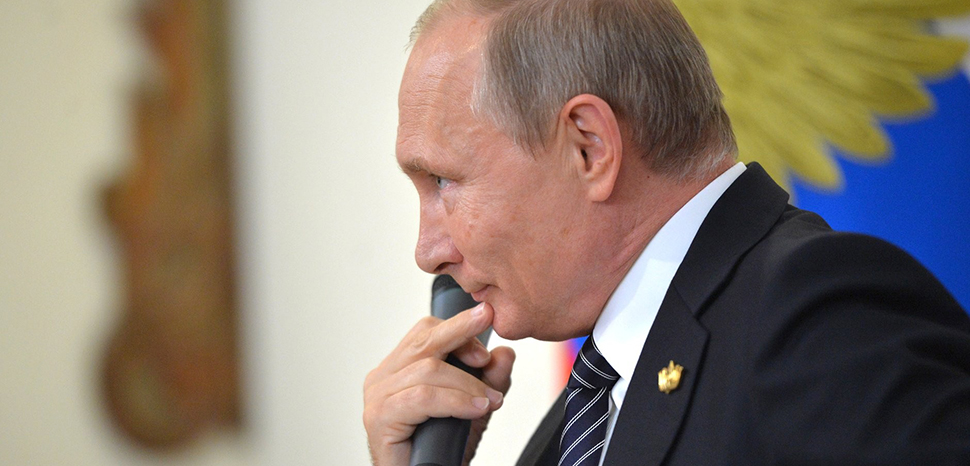The respect for minority rights remains of fundamental importance and may be regarded as a yardstick pertaining to the degree to which a country is committed to the observance of human rights as a whole. In fact, the persistence of negative trends with regard to the compliance with the rights of racial, ethnic, cultural or linguistic minorities could be a worrisome harbinger of democratic failure. However, while historically there have been a few instances of largely morally justifiable humanitarian interventions for the sake of upholding minority rights, Russia’s actions fall short of such standards and may even have far-reaching negative consequences for the international minority rights regime. Notably, on 23 May 2022 the Advisory Committee on the Framework Convention for the Protection of National Minorities explicitly lamented the use of the minority rights angle as a pretext for the war in Ukraine.
One of the Putin regime’s main publicly stated justifications for the invasion of Ukraine is the protection of the minority rights of the Russophone Ukrainians, with the Russian president even appearing to invoke the “Responsibility to Protect” global political commitment in the context of the need to stop a supposed genocide in its tracks. Not only is the latter statement at odds with the expert consensus regarding the situation in eastern Ukraine prior to the beginning of the war, but Putin’s Russia itself exhibits plenty of flaws when it comes to ensuring adherence to international recommendations on minority rights.
In March 2022, while bestowing Dagestani lieutenant Nurmagomed Gadzhimagomedov with a posthumous Hero of Russia award, Putin extolled the benefits of living in a multiethnic Russia, praising the non-titular ethnic minorities in the Russian Federation, juxtaposing the latter country against the supposedly ethnically exclusionary and Neo-Nazi Ukraine. In reality, there are persisting issues with ethnic discrimination within Russia itself compounded by a lack of consistency when it comes to Russian legislation in the minority rights realm. Violence directed at ethnic and racial minorities remains a major problem, but the topic of inter-racial and inter-ethnic polarization in contemporary Russia is nevertheless only rarely touched upon in official discourses. Thus, despite Russia itself not being a standard-bearer with regard to the collective rights accorded to national minorities, the Russian government’s policymaking elites appear to expect Ukraine to meet the benchmarks of fully-fledged Western democracies with regard to the degree of its compliance with minority rights guidelines.
Another downside of “humanitarian interventions” or “special military operations” of dubious merits emerges clearly by examining the case of the 2008 Russo-Georgian War, which has often drawn parallels with the current invasion of Ukraine. The similarities are due to what has been labeled as Europe’s first 21st century war seeing Russia make similar accusations to those leveled at Ukraine (in that instance alleging that the Ossetians were subjected to genocide) and “breakaway provinces” (South Ossetia and Abkhazia) being at the roots of the conflict. The war’s aftermath resulted in a worsening of the situation for ethnic minorities in Georgia in terms of human rights violations being committed against them and an increased hostility directed at them by members of the majority. When it comes to the ongoing war in Ukraine, a similar scenario is already playing out, with a hardening of attitudes in Ukraine toward visible minorities, at least on the official level.
Furthermore, the weaponization of minority rights by Putin may cause a ripple effect across Europe, increasing the general public’s mistrust of minority groups concentrated in specific regions, especially if the latter insist on special rights and a higher level of economic, cultural, and political autonomy from the central state, even if such demands are intellectually valid.
An analysis of past precedents in Central and Eastern Europe (CEE) following instances of belligerent policies pursued by the Russian state suggests that a rise in nationalism in CEE states may be expected. For instance, after Russia formally annexed Crimea in March 2014, there was an increase in national sentiment in CEE countries such as Poland and Romania, believed to be a counter-reaction to the nationalism displayed by Russia. A similar effect is even more likely now due to the elevated threat perceptions when it comes to Russia, as the current military operations are on an immeasurably larger scale than what occurred in Crimea. In countries that are imbued with a spirit of ethnic nationalism, especially if they are not fully consolidated democracies, minority rights are more likely to be violated or at least any concerns pertaining to the plight of minority groups may be swept under the carpet.
Such developments may not be absent in Western Europe as well where the minority rights of ethnic groups such as Catalans frequently go hand in hand with demands for greater territorial autonomy. In the case of Spain, around the time of the October 2017 Catalan independence referendum, which had been declared unconstitutional by the Constitutional Court, there were already allegations of contacts between notable Catalan separatists, such as Carles Puigdemont, and officials from the Putin administration, which may have played some part in discrediting the Catalan independentists. It is perhaps too early to draw a connection with the Russo-Ukrainian war, but the topic of Catalan-Russian collusion resurfaced in the Spanish media shortly after the beginning of the Russian invasion while a survey by the Catalonia Center for Opinion Studies published in March 2022 revealed that there had been a sharp drop in support for Catalan independence.
The Russian president is believed by some sources to be supportive of secessionist forces not only for instrumental reasons such as a destabilization of Western countries, but also as a symbolic payback for the collapse of the Soviet Union.
The shock reverberating around the world’s regions as a result of the Russian military actions in Ukraine, especially due to the huge toll exacted on civilians, as well as the narrative promoted by the Russian state that the war had supposedly been waged to rectify minority-related grievances, will likely sour support for legitimate humanitarian interventions of this type. In addition, in the long-term, it may have a negative effect on the relations between numerically dominant groups and minorities in a multitude of different European countries. With Russia increasingly becoming a ‘pariah state’ in the international system, any minority groups that are suspected of even tenuous links with officials representing the Russian government, especially if their aspirations are regarded as potentially threatening to the territorial integrity of their state, will likely receive little domestic sympathy for the pursuit of their collective goals.
The views expressed in this article belong to the authors alone and do not necessarily reflect those of Geopoliticalmonitor.com




